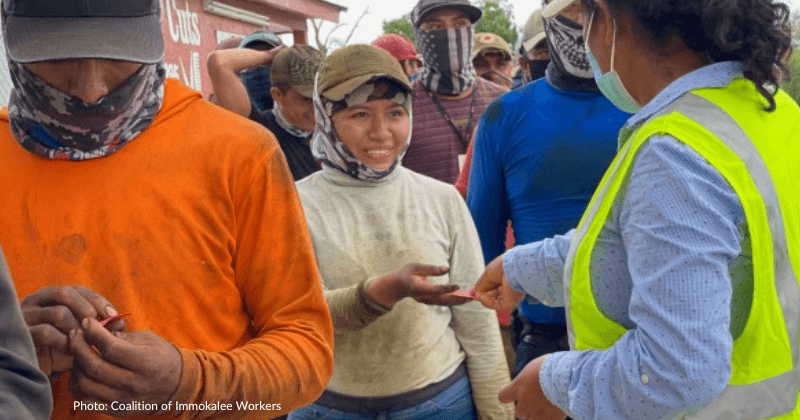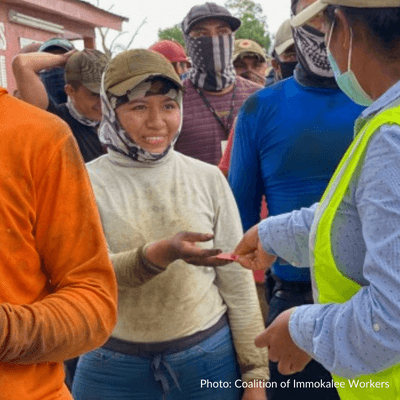COVID Kills Almost 300 People A Day. To Save Lives, MCN Supports Hyperlocal Effective Campaigns.

When bivalent vaccines arrived in September, Ashish Jha, the White House coronavirus response coordinator claimed they represented "a really important moment in this pandemic." Days after its release, Jha said, “you’re doing something that’s free and incredibly safe. It just feels like a no-brainer.” Three months later, the moment has passed. Under 13% of eligible people have received the booster in the United States, while an average of 262 people die of COVID in the United States every single day. While the daily figure is drastically below pandemic highs, it still represents almost 100,000 deaths a year – tens of thousands more deaths than during the worst flu years in recent US history.
“At this point, many of these deaths are preventable,” noted Amy K. Liebman, MPA, Chief Program Officer of Workers, Environment, and Climate at Migrant Clinicians Network, citing new research that indicates the booster is highly protective against severe infection and death. “The bivalent booster could bring our national defenses against COVID back up, and save many lives – but it won't work if we can't get the shots into arms.”
While the booster remains free for at least the next month, that’s not enough to ensure equal access, Liebman added. “Migrants, immigrants, underserved communities – they encounter numerous barriers to get their basic health needs met. These same barriers spring up to prevent them from getting the booster as well,” she said, despite the fact they are without cost. Transportation, social isolation, and language barriers may prevent them from getting to clinics. Those who work long hours or cannot afford childcare struggle to attend even after-hours vaccine clinics. Longstanding mistrust of health authorities and rampant misinformation further discourage many from getting the vaccine.
“That’s why MCN is working to support hyperlocal, culturally integrated campaigns to help people understand why they should get the bivalent booster,” Liebman said. Her MCN team provides community groups and community health workers with campaign materials and trainings, plus strategies to remove barriers to access relevant for local communities’ needs and specific access issues. MCN’s new grant, from the Center for Disaster Philanthropy, will support this work – efforts which are largely absent, after the federal government declined to provide outreach funding with the bivalent vaccine rollout. The grant will include learning collaboratives with community partners, the revision and updating of COVID resources, and ongoing support and technical assistance for community partners as they build hyperlocal campaigns.
“We’ve learned a lot and built strong relationships during the pandemic – and the pandemic isn’t over,” Liebman said. MCN will build on those relationships to equip communities with the tools they need to effectively connect with the hardest-to-reach – and provide them the opportunity to get vaccinated. “Really, it’s an equity issue. This work ensures health equity in our communities. It’s critical work.”
- Log in to post comments
